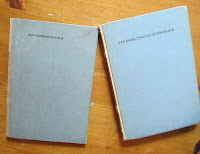From In A Tuscan Garden, published anonymously 1902
The views were enchanting: towards the north we looked up to the highest point of the old Etruscan mother city; eastward were the Vallombrosan hills, and lying down below, veiled in the misty light of the hot June sun, were the domes and spires of Florence, with the blue Apennines rising beyond, towards the far south. At the head of this park was the back or garden entrance to the large villa, and a sidewalk led from it to the gardens proper, now alas! In a fearful state of “decadence”.
The whole place was a perfect revelation to me. With perhaps the single exception of the royal villa of Quarto, I had never seen, nor have I since ever seen, any place in Tuscany to compare with it. So great an expanse of level ground is very unusual there, and it was the blending of the English with the Italian element of beauty that gave it so distinctive a character, and so great a charm. Much of the planting had been done in the far-off days of the English owners. The back of the large villa was covered with roses and jasmine, and the gardens, though in a pitiable state of neglect, bore traces of what they must once have been when, in the care of English gardeners, and when their mistress herself was often at work in them at five o’clock of a summer morning.
The park quite decided us that here we were going to establish ourselves, looking on the house merely as a place in which to sleep. We knew enough of the ways of the country to understand that there would be no such restrictions as prevail in England, and that we should practically have the run of the place. But it was months before matters were arranged. The owner was abroad; his secretary, with whom all business matters were transacted was ill during a great part of that summer; I was away in the mountains during August, and when I returned and took up the thread of negotiations, so many difficulties had to be overcome that I was several times on the point of throwing up the matter. I wanted a nine years’ lease, the longest legal term in Tuscany; but this was absolutely declined, and I was unwillingly obliged to content myself with a two years’ agreement. The secretary explained that they had never had a permanent tenant there and would like to see how the arrangement worked before committing themselves to a longer period. I felt there was reason in this, but there was so much to be done to the house that it was a great venture for me, and had we been obliged to give it up at the end of two years the loss would have been very great. Had I been dealing with an Italian we should certainly either have had our rent doubled or been turned out on our improvements; but with an Austrian it was different. Had I been resident in Tuscany in more recent times, I should have known that it was a matter of no importance to the owner whether the little house as let or not, and I can now never help smiling when I think how supremely ridiculous I must have appeared in many ways during these negotiations. I must have been a trial to the secretary, for all my ideas were of the most precise and British order, and things in Italy are not worked on those lines. Indeed we had several battles royal, chiefly from want of the gift of tongues; he was a German, speaking no English but only Italian and French, I do not speak German, so that we were both talking in a foreign language. However, I think I may say that these little differences were all forgotten and forgiven in later years.




